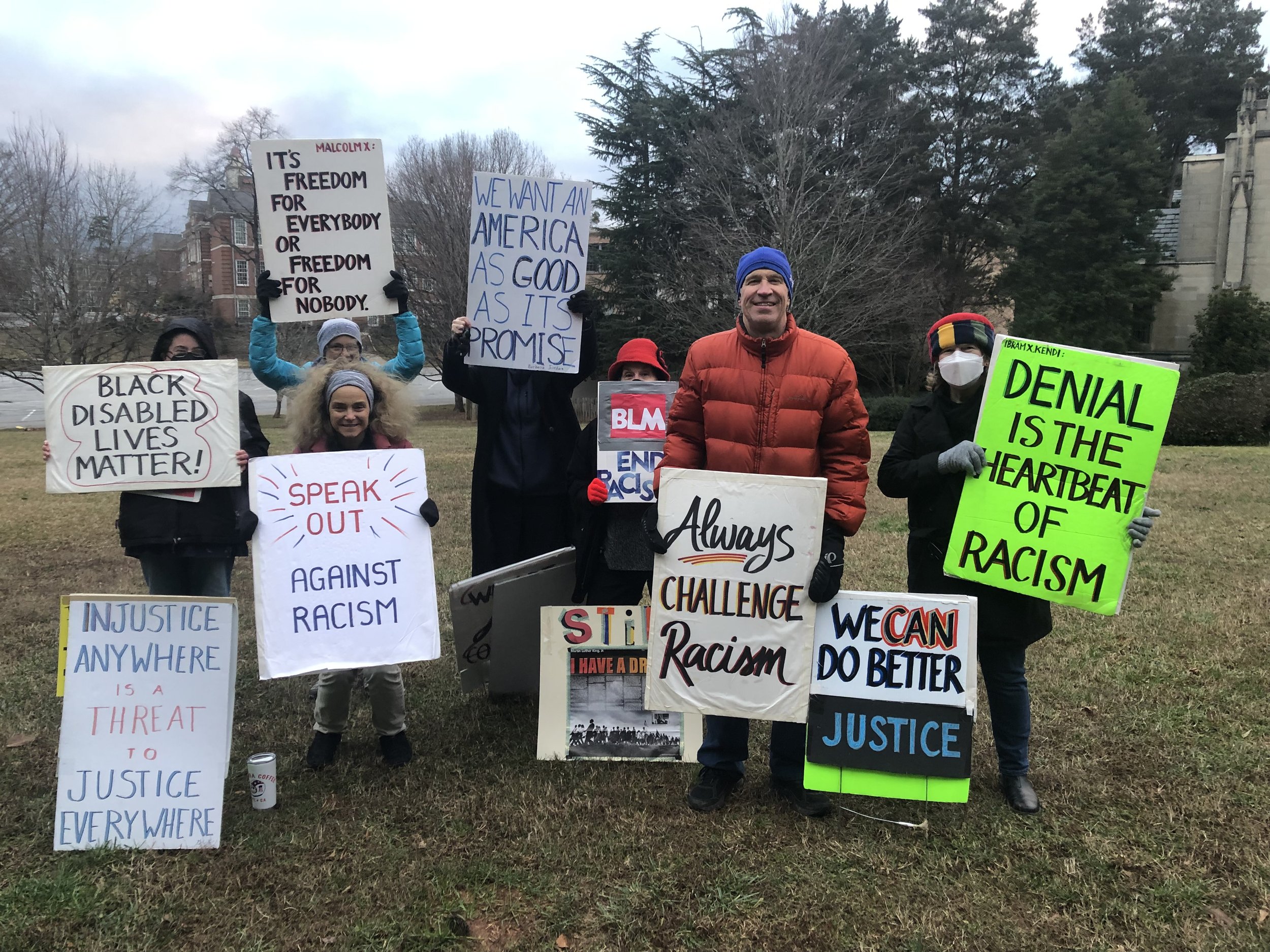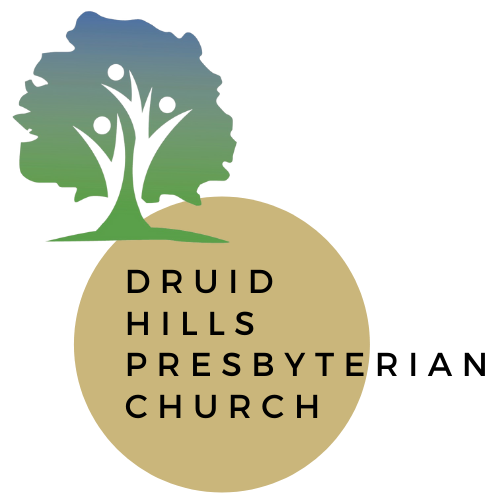
Every Month, we try to introduce a new idea for combating racism though various means

-
March 2025
Sixty-five years ago, Ruby Bridges single-handedly integrated a New Orleans elementary school. At just six years old, Bridges was escorted to school by federal marshals amid angry white protesters. Many white families withdrew their children, and the school’s principal isolated her. Her first-grade teacher, Barbara Henry, moved to New Orleans from Boston in order to instruct her and create a safe, loving environment despite the hatred outside. The bond between teacher and student remains strong, and Bridges shares their story in her new children’s book, Ruby Bridges: A Talk with My Teacher. Bridges recalls how Henry made learning enjoyable and supported her when she was denied recess and cafeteria access. Bridges’ believes her experience continues to resonate with children today, emphasizing the universal desire for acceptance and kindness. Share this book with the children in your life or enjoy it yourself. We’re never too old to be inspired to do good in the world!
-
February 2025
Why do we need DEI? Diversity, Equity and Inclusion (DEI) combats systemic racism by addressing structural inequalities that disadvantage marginalized groups. DEI policies promote equal access, challenge unconscious biases, foster greater representation in leadership, and amplify marginalized voices. DEI initiatives work to dismantle the systems that perpetuate racial disparities, ensuring fairer and more inclusive opportunities for all.
Despite political efforts to limit DEI programs, we must continue advocating for these values to prevent setbacks. Here are some key ways to support this important work:
1. Advocacy and Awareness: Stay informed, engage in open dialogue.
2. Education: Participate in training, be curious about diverse viewpoints.
3. Support Legislation: Support organizations grounded in DEI, advocate for recommended policies.
4. Community Support: Create safe spaces for marginalized voices.
-
January 2025
The historical drama Six Triple Eight, now streaming on Netflix, recounts the experiences of young Black women who joined the U.S. Army during World War II. Assigned to a battalion in Great Britain, their mission was to sort millions of pieces of undelivered mail—a task others had deemed impossible due to incomplete addresses, damaged envelopes, and troops constantly relocating.
Facing racism and doubt from their own superiors, Major Charity Adams and her battalion defied expectations. Through determination and teamwork, they completed the task in 90 days, reconnecting millions of soldiers and families. Despite their remarkable achievement, their contributions went unrecognized until 2022, when Major Adams was posthumously awarded the Congressional Gold Medal.
This January, as we reflect on Dr. King’s dream of justice and equality, consider watching Six Triple Eight with loved ones. Discuss the progress we’ve made and the work that remains in the ongoing fight for racial justice.
-
December 2024
The Christmas Story as a Call to Action
The story of Jesus’s humble beginnings (Luke 2:1-7), reminds us that God’s love isn’t reserved for the rich or powerful, but is first for the outcasts and the forgotten—perfect for reflecting on the struggles of marginalized communities today. The angel’s message of “peace on earth” (Luke 2:10-14) invites us to imagine a world where divisions, including racial injustice, are torn down. The arrival of the Magi (Matthew 2:1-12), bringing diverse gifts demonstrates that God’s love shows up in all people, no matter where we come from. Indeed, the Christmas story can be seen as a call to action, urging us to work for a world where everyone is treated with dignity and love. So, while we sing carols and watch the nativity unfold, let’s remember that this story is as much about justice and equality as it is about tidings of comfort and joy.
-
November 2024
In November, we remember our first Thanksgiving in America - the usual telling is about strangers sitting down together to share a bountiful meal, a story of two races of people showing generosity and goodwill towards each other. However, we know the early history of our country is actually a history of Indigenous people robbed of their lands and then driven to reservations. Colonial white Americans enriched themselves at the expense of non-white peoples, including Indigenous peoples and thousands of slaves brought forcibly from Africa. In her book The Sum of Us: What Racism Costs Everyone and How We Can Prosper Together (2021), Heather McGhee explains the concept of zero-sum hierarchy, the false idea that resources and opportunities are finite, so that if one group gains or succeeds, it subtracts from the dominant group. McGhee argues that our resources are not finite; instead, with cooperation and using diversity as an asset, we increase rather than decrease our resources. The zero-sum paradigm is counterproductive because it reinforces destructive divisions. Diverse people sharing resources and working together for justice is so much stronger than a divided country. Our first Thanksgiving story of strangers sitting down together and sharing what they have is the vision we need to work for.
-
October 2024
Get Out and Vote… and Help Your Neighbor!
Systemic racism has long hindered voter registration and election participation in marginalized communities. Barriers like strict voter ID laws persist today. In the polarized upcoming presidential election, every vote matters, influencing policies on healthcare, climate change, and social justice. Engaging in elections ourselves, and helping others to participate, amplifies diverse voices and counters extremism, reinforcing democratic values. Don’t overlook state and local elections on your ballot—preparing for these choices is crucial. For voter engagement resources, visit non-partisan sites like Ballotpedia or Vote411, or others particular to your party, focused on voter education or transportation to the polls.
-
September 2024
“Implicit bias - our subconscious associations of race - permeates everything that we do. And we must pursue systemic accountability to fix it.” -Opal Tometi (Nigerian-American human rights activist)
We are aware of our conscious thoughts, but unconscious prejudices are sometimes difficult to understand. Yet we all possess these implicit biases. It’s OK to admit. It’s the only way to begin to change. How do we recognize our biases? A good place to start would be with discovering our implicit biases, and we can do that with a test. No grades. Project Implicit, a Harvard University project that offers Implicit Association Tests that will measure hidden biases. Once you are aware of your biases you can begin to stop them from being a factor in your decision making, and you can evaluate people on their characteristics and not their race.
-
August 2024
Children across the country will soon begin their school year. But schools often fail to provide an equal education for every individual. Take a moment to understand the school-to-prison pipeline and the structures that limit school success for children of color. Ask how you can support students and teachers of color in a learning environment. Support initiatives that allow diverse teaching staff to thrive and ensure that materials provided to children in schools shows students from diverse backgrounds. For more info, check the following websites: ACLU, Pushkin, The Conscious Kid, NAACP, and the Center for American Progress.
-
July 2024
Hate groups and hate crimes are growing in the United States. Learning about these groups and how to deal with them will make our community a safer place for all of us. According to the Anti-Defamation League a hate group is “an organization whose goals and activities are primarily or substantially based on a shared antipathy towards people of one or more different races, religions, ethnicities/nationalities, genders, and/or sexual identities. The mere presence of bigoted members in a group or organization is typically not enough to qualify it as a hate group; the group itself must have some hate-based orientation/purpose.” The organization Not In Our Town (www.niot.org) lists seven actions that can be taken when a hate group is recognized in the community. Take a look and think about what you can do.
-
June 2024
Gun violence is a racial justice issue. Gun violence disproportionately impacts Black and Brown people. A Black person is over 10 times as likely to be killed by firearms and Indigenous people are almost 3.5 times more likely to be killed by a firearm compared to white people. Community-based groups, lead by BIPOC organizers, have worked relentlessly to develop community-based solutions that successfully reduce gun violence. To learn more, listen to this podcast from Brady, a gun violence prevention organization: https://www.bradyunited.org/resources/podcast/45-on-the-front-lines
